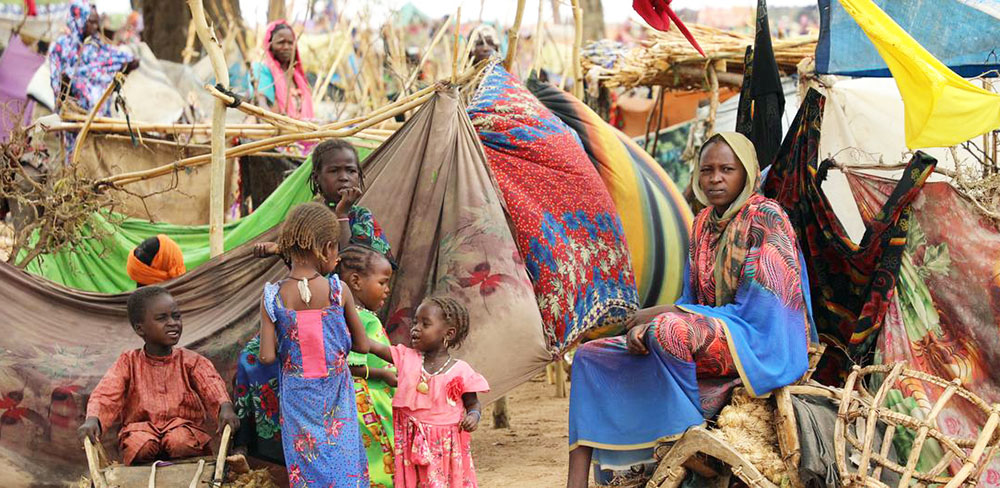
The importance of psychological support for war victims
Dr. Mubarak Maman
Many Sudanese suffer from the scourge of war, and face tragic situations in areas of displacement and countries of asylum. Psychological stress is the main factor in their suffering to face the new reality and post-war conditions.
Providing psychological support to war victims, displaced individuals and refugees is critical given the profound impact of conflict and forced displacement on mental and mental health. War and individual displacement are often subject to painful experiences, leading to different psychological challenges.
Psychological support is necessary for a number of reasons, including:
1. Trauma Recovery:
Many war victims suffer severe trauma, including witnessing violence, loss of loved ones and displacement. Psychological support helps individuals tackle and cope with these traumatic experiences, enhancing the path towards recovery.
2. Mental health stability:
Displacement and lack of conviction about asylum can contribute to anxiety, depression and other mental health problems. Psychological support provides tools and mechanisms for adaptation to enhance mental health stability and resilience in the face of adversity.
3. Prevention of post-traumatic stress disorder (PTSD):
Exposure to war-related trauma increases the risk of post-traumatic stress disorder. Early psychological interventions can help prevent the long-term consequences of PTSD by addressing symptoms and facilitating emotional recovery.
4. Restoration of cohesion and community welfare:
Supporting individuals mental health contributes to the overall well-being of the displaced community. Mental health is linked to societys cohesion, cooperation and ability to rebuild life after displacement.
5. Promoting childrens healthy development:
Displacement significantly affects children, affecting their emotional and cognitive development. Psychological support is vital for children to address their experiences, overcome challenges and build a foundation for healthy development.
6. Integration and reintegration:
For refugees returning to their countries of origin or integrated into new communities, psychological support helps in the adjustment process. It addresses psychological barriers to integration and reintegration, facilitating a smoother transition process.
7. Reducing stigma:
Mental health challenges are often stigmatized, preventing individuals from seeking help. Providing psychological support reduces the stigma associated with mental health issues, encouraging individuals to access the assistance they need.
8. Enhancing flexibility:
Psychological support provides individuals with adaptation strategies, emotional organization skills, and flexibility building techniques. This enables them to face persistent challenges and uncertainties more vigorously.
In short, psychological support plays a vital role in rebuilding life, enhancing resilience and promoting sustainable recovery in the aftermath of conflict and displacement.
If you are suffering from psychological stress and need psychosocial support services, consider the following steps to find available resources:
1. Local NGOs and relief organizations:
Communicate with local NGOs and humanitarian organizations in the region where they are located. They often provide psychosocial support services or can direct you to the organizations that do. *
2. Community centres and refugee camp services:
Visit community centres or refugee camps in your area. These facilities may provide psychosocial support programmes, counselling services and group activities to help individuals meet the challenges of displacement. *
3. United Nations agencies:
Contact relevant United Nations agencies, such as the Office of the United Nations High Commissioner for Refugees (UNHCR) or the United Nations Childrens Fund (UNICEF). They often collaborate with partner organizations to provide psychosocial support to the displaced population.
4. Local Mental Health Services:
Discover local mental health services or clinics. Some regions may have mental health professionals or organizations specializing in trauma and psychosocial support. *
5. Hotlines and helplines:
Find national or international hotlines and helplines that provide psychosocial support. Many organizations provide telephone counseling services to individuals in crisis situations. *
6. Online platforms and resources:
Find online platforms and resources that link displaced individuals to psychosocial support. Virtual consultation services and resources may be available for remote assistance, if available and your condition permitted. *
A number of psychologists from inside and outside the Sudan have established psychological support platforms with which you can communicate.
7. Refugee Support Networks:
Communicate with refugee support networks and community groups. These networks often share information about available services and can provide guidance on access to psychosocial support. *
There are a number of groups of Sudanese psychologists and doctors who provide psychological support directly or remotely.
8. Local Health Care Providers:
Consult local healthcare providers, hospitals or clinics. They may have information about mental health services or can refer you to psychosocial support professionals. *
9. Social workers and case managers:
If you have a social worker or case manager dedicated to you, inquire about available psychosocial support services. They can guide you to the right resources based on your specific needs. *
10. Educational institutions:
Contact local schools or universities. They may have partnerships or programmes providing psychosocial support to displaced individuals. *
Remember that seeking help is a brave step, and there are organizations and specialists to support individuals in your situation. Feel free to communicate and enquire about available

